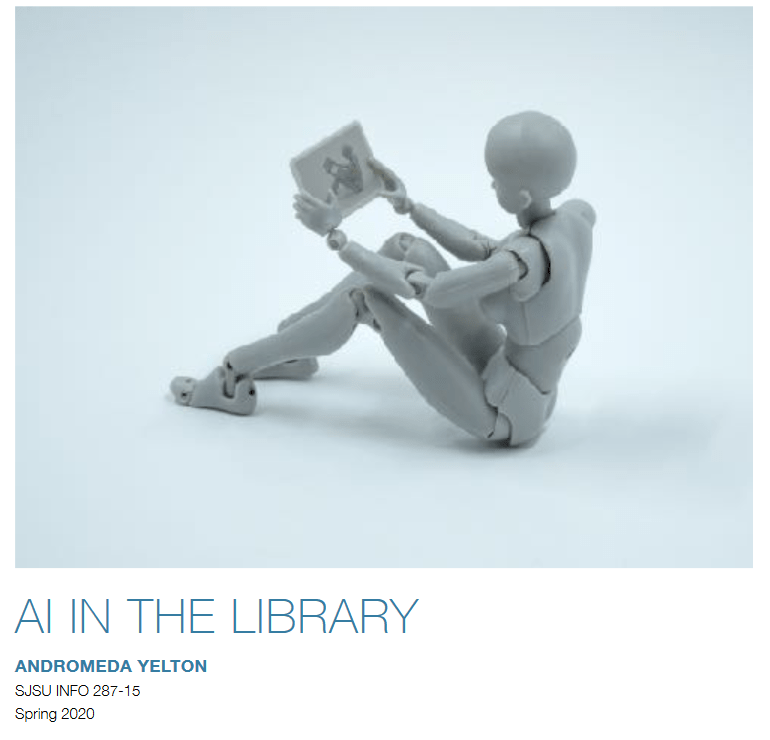Today the library is closed as is my place of work’s tradition on the last day of Reading Week.
But as I have three events (helping in a workshop, giving a presentation, participating in a focus group) in my calendar, I’m just going to work the day and bank the time for later.
§1
Barbara Fister in The Atlantic!

We are experiencing a moment that is exposing a schism between two groups: those who have faith that there is a way to arrive at truth using epistemological practices that originated during the Enlightenment, and those who believe that events and experiences are portents to be interpreted in ways that align with their personal values. As the sociologist and media scholar Francesca Tripodi has demonstrated, many conservatives read the news using techniques learned through Bible study, shunning secular interpretations of events as biased and inconsistent with their exegesis of primary texts such as presidential speeches and the Constitution. The faithful can even acquire anthologies of Donald Trump’s infamous tweets to aid in their study of coded messages.
While people using these literacy practices are not unaware of mainstream media narratives, they distrust them in favor of their own research, which is tied to personal experience and a high level of skepticism toward secular institutions of knowledge. This opens up opportunities for conservative and extremist political actors to exploit the strong ties between the Republican Party and white evangelical Christians. The conspiracy theory known as QAnon is a perfect—and worrisome—example of how this works. After all, QAnon is something of a syncretic religion. But its influence doesn’t stop with religious communities. While at its core it’s a 21st-century reboot of a medieval anti-Semitic trope (blood libel), it has shed some of its Christian vestments to gain significant traction among non-evangelical audiences.
§2
New to me: Andromeda Yelton’s course reading list dedicated to AI in the Library. Hat-tip to Beck Tench.

§3
I recently suggested that MPOW’s next Journal Club should deviate from looking at the library literature and reflect on personal knowledge management. I’m not sure how much take up there will be on the topic, but I love reading about how other people deliberately set up how they set up systems to help them learn.
Case in point: Cecily Walker’s Thoughts Like A Runaway Train: Notes on Information Management with Zettelkasten

Fun fact: I first learned of Zettelkasten from Beck Tench.

2 Responses to “Weeknote 7 (2021)”
I hadn’t realized that I was as interested in reading about other people’s personal knowledge management systems either until you mentioned it as a thing. I’m very intrigued by the zettelkasten method (thanks for bringing it to my attention). As a Windows person, I’m feeling yet again envious of the Mac community for what seems to be a much richer range of options they have for note taking software. I’m going to take a closer look at the personal wiki I set up years ago in my college’s Confluence system to see if I can re-engineer along zettelkasten lines. If not, at least you’ve given me a better set of ideas about how to capture, synthesize, and make more use of the information that I consume.
I was so surprised how much the book “How to take Smart Notes: One Simple Technique to Boost Writing, Learning and Thinking – for Students, Academics and Nonfiction Book Writers” changed me.
https://librarian.aedileworks.com/2020/10/08/why-would-someone-pay-1500-to-learn-how-to-write-notes/